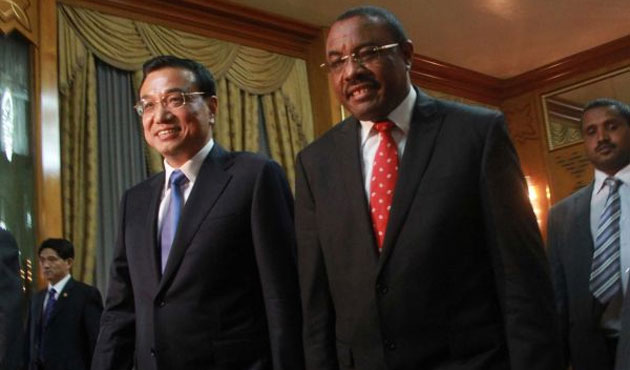Chinese Premier Li Keqiang unveiled extra aid for Africa totaling at least $12 billion on Monday, and offered to share advance technology with the continent to help with development of high-speed rail.
 Chinese Premier Li Keqiang unveiled extra aid for Africa totaling at least $12 billion on Monday, and offered to share advance technology with the continent to help with development of high-speed rail, state news agency Xinhua reported.
Chinese Premier Li Keqiang unveiled extra aid for Africa totaling at least $12 billion on Monday, and offered to share advance technology with the continent to help with development of high-speed rail, state news agency Xinhua reported.
Li pledged the additional funding in a speech at the Organization of African Union headquarters in the Ethiopian capital, Addis Ababa.
China will increase credit lines to Africa by $10 billion and will boost the China-Africa Development Fund by $2 billion, bringing it to a total of $5 billion, Xinhua said. It provided no details of the timeframe.
Li "depicted a dream that all African capitals are connected with high-speed rail, so as to boost pan-African communication and development," the report said.
As China has advanced technologies in this area, Li said China was ready to work with Africa "to make this dream come true".
China will also offer $100 million in aid for wildlife protection, Li added.
It is Li's first visit to Africa since he became premier last year, and follows on from a trip to the continent by President Xi Jinping in March 2013, when he renewed an offer of $20 billion in loans to Africa between 2013 and 2015.
It was unclear if the aid announced by Li is already included in that figure or if this is new funding.
Chinese officials said last week that Li's trip, which also takes in oil-rich Nigeria and Angola, would not simply be for energy deals and Beijing will be seeking to help boost African living standards.
Trips by Chinese leaders to Africa are often marked by big natural resource deals, triggering criticism from some quarters that China is only interested in the continent's mineral and energy wealth.
Africans broadly see China as a healthy counterbalance to Western influence but, as ties mature, there are growing calls from policymakers and economists for more balanced trade relations.